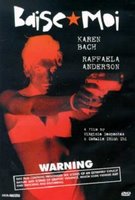"Extreme cinema" and sexual violence

I like the director Alex Cox (Repo Man and Sid and Nancy). He used to introduce Moviedrome in the late 80s and early 90s. I remember him introducing Oliver Stone's Salvador and giving a 10 minute excellent potted history of American imperialism. Didn't get when film critic Mark Kermode took over....
Anyway, Alex Cox has written a piece in today's Guardian regarding a study which aims to investigate audience responses to sexual violence in films. This research has been commissoned by the British Board of Film Classification and is being conducted by Aberystwyth University. It is questionnaire based research and they are also advertising on the Internet Movie Database for people who have watched the following films.
The films the researchers are interested in are the films which have given the most headaches to the BBFC such as:
A Ma Soeur
Irreversible
Baise Moi
Koroshiya
House on the edge of the park
The above have been either banned outright such as House on the edge of the park which was refused a certification in the UK when presented in 1981. Eventually received one in 2002 after 11 minutes worth of cuts. Or heavily cut such as Baise-Moi, Koroshiya, Irreversible and A Ma Soeur (all cut on UK release)
The researchers ask how does sexual violence affect peoples' understanding of and feelings about the movie? What difference does the version of the film you get to see make the way you respond to it (cut/uncut). The BBFC have funded the study but the researchers maintain independence and have total control over it.
Alex Cox makes interesting observations regarding sexual violence in "extreme film" where he asks are filmmakers, festivals and distributors creating an audience for increasing levels of sexual violence? He doesn't have the answer but he waits with anticipation for the results from this study. He also writes about his own experience of being asked by the Film Council to "make the rape scene more violent and explicit" (Revengers Tragedy - 2001). Cox refused because "when we do these things, film directors essentially become pimps - persuading usually reluctant women to do what the clients expect them to".
He further asks what do Tarantino's fans think about violence against women? Why does Hollywood action cinema demean women and minorities? Is this a political agenda, and if so who sets it? Why is "extreme cinema" so focused on sexual violence and rape?
I think Cox raises some important points and I agree with him on some aspects. Though contradictory I liked Tarantino's film Kill Bill Vol. 1 and 2. The documentary film maker Nick Broomfield criticised the film when it was released by arguing it was a deeply sexist film. Yes, it was, but I enjoyed watching it. I think there are indeed complex and contradictory issues which are thrown up about screen violence and what people make of it. What impact (if any) does it have on the viewer? Does it alter (consciously/unconsciously) their understanding of sexual violence? Does it affect views on women?
I will be very interested to see the findings from this research as well because I wonder what the actual objectives of BBFC are. Are they looking to cut more films on release and may use the findings as the basic for doing it? I know I am pre-empting the findings but I am cynical when it comes to the BBFC. I hope the pertinent questions Cox asks are answered in some way without any preconceptions at least but I get a feeling that's not what's on the BBFC agenda.


